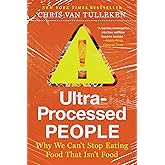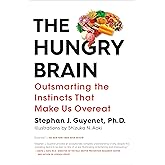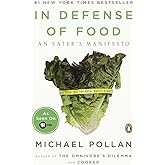Excerpt. © Reprinted by permission. All rights reserved.
part one sugar
chapter one
“Exploiting the Biology of the Child”
The first thing to know about sugar is this: Our bodies are hard-wired for sweets.
Forget what we learned in school from that old diagram called the tongue map, the one that says our five main tastes are detected by five distinct parts of the tongue. That the back has a big zone for blasts of bitter, the sides grab the sour and the salty, and the tip of the tongue has that one single spot for sweet. The tongue map is wrong. As researchers would discover in the 1970s, its creators misinterpreted the work of a German graduate student that was published in 1901; his experiments showed only that we might taste a little more sweetness on the tip of the tongue. In truth, the entire mouth goes crazy for sugar, including the upper reaches known as the palate. There are special receptors for sweetness in every one of the mouth’s ten thousand taste buds, and they are all hooked up, one way or another, to the parts of the brain known as the pleasure zones, where we get rewarded for stoking our bodies with energy. But our zeal doesn’t stop there. Scientists are now finding taste receptors that light up for sugar all the way down our esophagus to our stomach and pancreas, and they appear to be intricately tied to our appetites.
The second thing to know about sugar: Food manufacturers are well aware of the tongue map folly, along with a whole lot more about why we crave sweets. They have on staff cadres of scientists who specialize in the senses, and the companies use their knowledge to put sugar to work for them in countless ways. Sugar not only makes the taste of food and drink irresistible. The industry has learned that it can also be used to pull off a string of manufacturing miracles, from donuts that fry up bigger to bread that won’t go stale to cereal that is toasty-brown and fluffy. All of this has made sugar a go-to ingredient in processed foods. On average, we consume 71 pounds of caloric sweeteners each year. That’s 22 teaspoons of sugar, per person, per day. The amount is almost equally split three ways, with the sugar derived from sugar cane, sugar beets, and the group of corn sweeteners that includes high-fructose corn syrup (with a little honey and syrup thrown into the mix).
That we love, and crave, sugar is hardly news. Whole books have been devoted to its romp through history, in which people overcame geography, strife, and overwhelming technical hurdles to feed their insatiable habit. The highlights start with Christopher Columbus, who brought sugar cane along on his second voyage to the New World, where it was planted in Spanish Santo Domingo, was eventually worked into granulated sugar by enslaved Africans, and, starting in 1516, was shipped back to Europe to meet the continent’s surging appetite for the stuff. The next notable development came in 1807 when a British naval blockade of France cut off easy access to sugar cane crops, and entrepreneurs, racing to meet demand, figured out how to extract sugar from beets, which could be grown easily in temperate Europe. Cane and beets remained the two main sources of sugar until the 1970s, when rising prices spurred the invention of high-fructose corn syrup, which had two attributes that were attractive to the soda industry. One, it was cheap, effectively subsidized by the federal price supports for corn; and two, it was liquid, which meant that it could be pumped directly into food and drink. Over the next thirty years, our consumption of sugar-sweetened soda more than doubled to 40 gallons a year per person, and while this has tapered off since then, hitting 32 gallons in 2011, there has been a commensurate surge in other sweet drinks, like teas, sports ades, vitamin waters, and energy drinks. Their yearly consumption has nearly doubled in the past decade to 14 gallons a person.
Far less well known than the history of sugar, however, is the intense research that scientists have conducted into its allure, the biology and psychology of why we find it so irresistible.
For the longest time, the people who spent their careers studying nutrition could only guess at the extent to which people are attracted to sugar. They had a sense, but no proof, that sugar was so powerful it could compel us to eat more than we should and thus do harm to our health. That all changed in the late 1960s, when some lab rats in upstate New York got ahold of Froot Loops, the supersweet cereal made by Kellogg. The rats were fed the cereal by a graduate student named Anthony Sclafani who, at first, was just being nice to the animals in his care. But when Sclafani noticed how fast they gobbled it up, he decided to concoct a test to measure their zeal. Rats hate open spaces; even in cages, they tend to stick to the shadowy corners and sides. So Sclafani put a little of the cereal in the brightly lit, open center of their cages—normally an area to be avoided—to see what would happen. Sure enough, the rats overcame their instinctual fears and ran out in the open to gorge.
Their predilection for sweets became scientifically significant a few years later when Sclafani—who’d become an assistant professor of psychology at Brooklyn College—was trying to fatten some rats for a study. Their standard Purina Dog Chow wasn’t doing the trick, even when Sclafani added lots of fats to the mix. The rats wouldn’t eat enough to gain significant weight. So Sclafani, remembering the Froot Loops experiment, sent a graduate student out to a supermarket on Flatbush Avenue to buy some cookies and candies and other sugar-laden products. And the rats went bananas, they couldn’t resist. They were particularly fond of sweetened condensed milk and chocolate bars. They ate so much over the course of a few weeks that they grew obese.
“Everyone who owns pet rats knows if you give them a cookie they will like that, but no one experimentally had given them all they want,” Sclafani told me when I met him at his lab in Brooklyn, where he continues to use rodents in studying the psychology and brain mechanisms that underlie the desire for high-fat and high-sugar foods. When he did just that, when he gave his rats all they wanted, he saw their appetite for sugar in a new light. They loved it, and this craving completely overrode the biological brakes that should have been saying: Stop.
The details of Sclafani’s experiment went into a 1976 paper that is revered by researchers as one of the first experimental proofs of food cravings. Since its publication, a whole body of research has been undertaken to link sugar to compulsive overeating. In Florida, researchers have conditioned rats to expect an electrical shock when they eat cheesecake, and still they lunge for it. Scientists at Princeton found that rats taken off a sugary diet will exhibit signs of withdrawal, such as chattering teeth. Still, these studies involve only rodents, which in the world of science are known to have a limited ability to predict human physiology and behavior.
What about people and Froot Loops?
For some answers to this question, and for most of the foundational science on how and why we are so attracted to sugar, the food industry has turned to a place called the Monell Chemical Senses Center in Philadelphia. It is located a few blocks west of the Amtrak station, in a bland five-story brick building easily overlooked in the architectural wasteland of the district known as University City—except for “Eddy,” the giant sculpture that stands guarding the entrance. Eddy is a ten-foot-high fragment of a face, and he perfectly captures the obsessions of those inside: He is all nose and mouth.
Getting buzzed through the center’s front door is like stepping into a clubhouse for PhDs. The scientists here hang out in the corridors to swap notions that lead to wild discoveries, like how cats are unable to taste sweets, or how the cough that results from sipping a high-quality olive oil is caused by an anti-inflammatory agent, which may prove to be yet another reason for nutritionists to love this oil so much. The researchers at Monell bustle to and from conference rooms and equipment-filled labs and peer through one-way mirrors at the children and adults who eat and drink their way through the center’s many ongoing experiments. Over the last forty years, more than three hundred physiologists, chemists, neuroscientists, biologists, and geneticists have cycled through Monell to help decipher the mechanisms of taste and smell along with the complex psychology that underlies our love for food. They are among the world’s foremost authorities on taste. In 2001, they identified the actual protein molecule, T1R3, that sits in the taste bud and detects sugar. More recently they have been tracking the sugar sensors that are spread throughout the digestive system, and they now suspect that these sensors are playing a variety of key roles in our metabolism. They have even solved one of the more enduring mysteries in food cravings: the marijuana-induced state known as “the munchies.” This came about in 2009 when Robert Margolskee, a molecular biologist and associate director of the center, joined other scientists in discovering that the sweet taste receptors on the tongue get aroused by endocannabinoids—substances that are produced in the brain to increase our appetite. They are chemical sisters to THC, the active ingredient in marijuana, which may explain why smoking marijuana can trigger hunger pangs. “Our taste cells are turning out to be smarter than we thought, and more involved in regulating our appetites,” Margolskee told me.
The stickiest subject at Monell, however, is not sugar. It’s money. Taxpayers fund about half of the center’s $17.5 million annual budget through federal grants, but much of the rest of its operation comes from the food industry, including the big manufacturers, as well as several tobacco companies. A large golden plaque in the lobby pays homage to PepsiCo, Coca-Cola, Kraft, Nestlé, Philip Morris, among others. It’s an odd arrangement, for sure, one that evokes past efforts by the tobacco industry to buy “research” that put cigarettes in a favorable light. At Monell, the industry funding buys companies a privileged access to the center and its labs. They get exclusive first looks at the center’s research, often as early as three years before the information goes public, and are also able to engage some of Monell’s scientists to conduct special studies for their particular needs. But Monell prides itself on the integrity and independence of its scientists. Some of their work, in fact, is funded with monies from the lawsuits that states brought against the tobacco manufacturers.
“At Monell, scientists choose their research projects based solely on their own curiosity and interests and are deeply committed to the pursuit of fundamental knowledge,” the center said in response to my questions about its financial structure. Indeed, as I would discover, though Monell receives industry funding, some of its scientists sound like consumer activists when they speak about the power their benefactors wield, especially when it comes to children.
This tension between the industry’s excitement about the research at Monell and the center’s own unease about the industry’s practices dates back to some of the center’s earliest research on our taste buds—based on age, sex, and race. Back in the 1970s, researchers at Monell discovered that kids and African Americans were particularly keen on foods that were salty and sweet. They gave solutions of varying sweetness and saltiness to a group of 140 adults and then to a group of 618 children aged nine to fifteen, and the kids were found to like the highest level of sweet and salty—even more than the adults. Twice as many kids as adults chose the sweetest and saltiest solutions. (This was the first scientific proof of what parents, watching their kids lunge for the sugar bowl at the breakfast table, already knew instinctively.) The difference among adults was less striking but still significant: More African Americans chose the sweetest and saltiest solutions.
One of Monell’s sponsors, Frito-Lay, was particularly interested in the salt part of the study, since the company made most of its money on salty chips. Citing Monell’s work in a 1980 internal memo, a Frito-Lay food scientist summed up the finding on kids and added, “Racial Effect: It has been shown that blacks (in particular, black adolescents) displayed the greatest preference for a high concentration of salt.” The Monell scientist who did this groundbreaking study, however, raised another issue that reflected his anxiety about the food industry. Kids didn’t just like sugar more than adults, this scientist, Lawrence Greene, pointed out in a paper published in 1975. Data showed they were actually consuming more of the stuff, and Greene suggested there might be a chicken-and-egg issue at play: Some of this craving for sugar may not be innate in kids but rather is the result of the massive amounts of sugar being added to processed foods. Scientists call this a learned behavior, and Greene was one of the first to suggest that the increasingly sweet American diet could be driving the desire for more sugar, which, he wrote, “may or may not correspond to optimum nutritional practices.”
In other words, the sweeter the industry made its food, the sweeter kids liked their food to be.
I wanted to explore this idea a bit more deeply, so I spent some time with Julie Mennella, a biopsychologist who first came to Monell in 1988. In graduate school, she had studied maternal behavior in animals and realized that no one was examining the influence that food and flavors had on women who were mothers. She joined Monell to answer a set of unknowns about food. Do the flavors of the food you eat transmit to your milk? Do they transmit to amniotic fluid? Do babies develop likes and dislikes for foods even before they are born?
“One of the most fundamental mysteries is why we like the foods that we do,” Mennella said. “The liking of sweet is part of the basic biology of a child. When you think of the taste system, it makes one of the most important decisions of all: whether to accept a food. And, once we do, to warn the digestive system of impending nutrients. The taste system is our gatekeeper and one of the research approaches has been to take a developmental route, to look from the beginning—and what you see is that children are living in different sensory worlds than you and I. As a group, they prefer much higher levels of sweet and salt, rejecting bitter more than we do. I would argue that part of the reason children like high levels of sweet and salt is a reflection of their basic biology.”


























